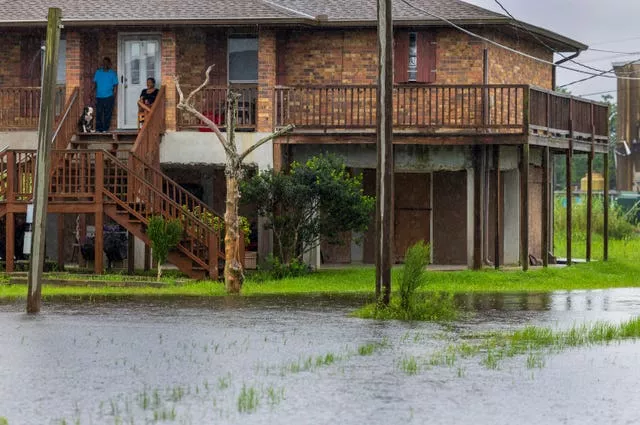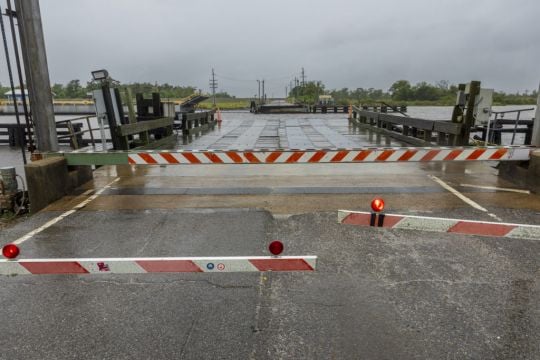Hurricane Francine has struck Louisiana as a Category 2 storm that forecasters warned could bring a deadly storm surge, widespread flooding and destructive winds on the northern US Gulf Coast.
Francine made landfall in Terrebonne Parish, about 30 miles south-west of Morgan City, the National Hurricane Centre announced.
Packing maximum sustained winds near 100mph, the hurricane crashed into a fragile coastal region that has not fully recovered from a series of devastating hurricanes in 2020 and 2021.
In Morgan City, fuel stations had put plywood on the windows and moved rubbish bins inside, with a few pumps still serving the trickle of cars passing through shortly after dawn.
5pm CDT Sep 11th -- #Francine has made landfall in southern Louisiana in the Parish of Terrebonne, about 30 miles south-southwest of Morgan City, as a Category 2 hurricane.
Maximum sustained winds are estimated to be near 100 mph (155 km/h).
TCU: https://t.co/31xmuEYovB pic.twitter.com/fvWoaJfZs8Advertisement— National Hurricane Center (@NHC_Atlantic) September 11, 2024
Retired boat captain Pat Simon, 75, and his wife, Ruth, loaded all their possessions into bags and tied them down in the back of a rented truck as they evacuated their home near the banks of the Atchafalaya River near Morgan City.
“I don’t think it’s going to be that bad, like some of the other ones like Ida and Katrina,” Pat Simon said. “I mean, we’ve had some bad ones.”
Francine drew fuel from exceedingly warm Gulf of Mexico waters, strengthening from a Category 1 to a Category 2 storm.
Louisiana governor Jeff Landry urged residents to “stay off the roads, stay home and stay put”.
He said the National Guard was being sent to parishes that could be impacted by Francine.

As winds started to significantly increase on the Louisiana coast, some 17,000 power outages were reported by late Wednesday afternoon, according to online tracking map poweroutage.us.
Since the mid-19th century 57 hurricanes have tracked over or made landfall in Louisiana, according to The Weather Channel. Among them are some of the strongest, costliest and deadliest storms in US history.
President Joe Biden granted an emergency declaration that will help Louisiana secure federal money and logistical assistance from partners such as the Federal Emergency Management Agency. Both Mr Landry and Mississippi governor Tate Reeves also declared states of emergency, authorising them to quickly free up resources for disaster assistance.
A hurricane warning was in effect along the Louisiana coast from Cameron east to Grand Isle, about 50 miles south of New Orleans. A storm surge warning stretched from the Mississippi-Alabama border to the Alabama-Florida border. Such a warning means life-threatening flooding could occur.
The Mississippi Emergency Management Agency said it distributed more than 100,000 sandbags to the southern part of the state and the Department of Education reported a number of school district closures for Wednesday and Thursday.

Francine is the sixth named storm of the Atlantic hurricane season. Much of Louisiana and Mississippi could get 4-8 inches of rain, with the possibility of 12 inches in some spots, said Brad Reinhart, a senior hurricane specialist at the hurricane centre.
The hurricane centre said parts of Mississippi, Alabama and the Florida Panhandle were at risk of “considerable” flash and urban flooding. The lower Mississippi Valley and lower Tennessee Valley could experience flooding later in the week as the soggy remnants of Francine sweep inland.
Francine’s storm surge on the Louisiana coast was forecast to reach as much as 10 feet from Cameron to Port Fourchon and into Vermilion Bay, forecasters said.







